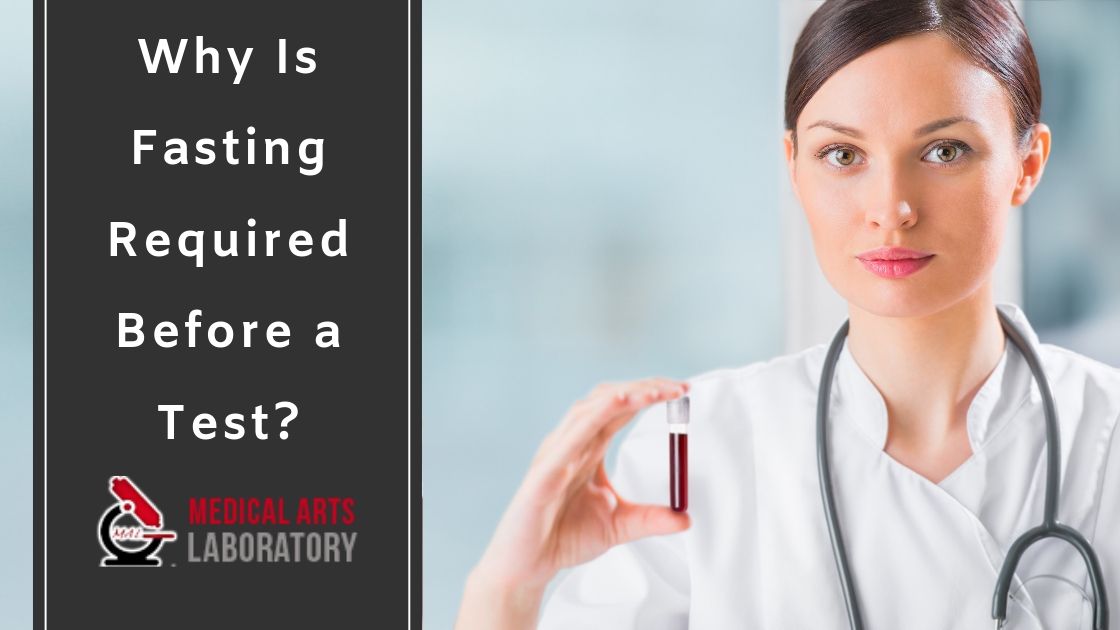
10 Sep Why Is Fasting Required Before a Test?
When it comes to medical procedures and fasting, most people likely think of surgery or a colonoscopy as the only times you need to fast from foods and/or liquids. However, a number of blood tests also require fasting in order to produce accurate results. Some blood tests require more restrictive fasting than others. The good news is that once the blood test is complete, you will be able to return to your normal eating and drinking schedule.
Let’s uncover which blood tests require fasting, how to get the most accurate results and what else you will need to avoid before testing.
Types of Tests that Require Fasting
There are many reasons your doctor may require that you do not eat or drink anything besides water before a blood test. This is to make sure that your results are accurate. Drinking plain water (not carbonated, flavored or vitamin-enhanced) is usually acceptable and often encouraged, as being well-hydrated makes it easier for the lab technician to find the vein for a successful draw. It’s important to remember that not all blood tests require fasting, just a select few.
The most common blood tests that may require fasting include:
- Glucose tests for diabetes
- Cholesterol tests (HDL, LDL and triglycerides), also known as lipid profiles
- Iron tests for anemia
- Metabolic tests (comprehensive or basic)
- Gamma-glutamyl transferase tests (GGT) for your liver
- Lipoprotein panel tess
- Vitamin B12 tests
- Renal function panel tests
Getting the Most Accurate Results
Certain blood tests provide more accurate results when your body has fasted for a period of time, which allows for particular substances to completely break down and not be present in the patient’s bloodstream. The presence of sugars, fats and cholesterol, minerals like iron, and enzymes can especially affect results. An accurate blood test diagnosis can be lifesaving for serious medical conditions like liver disease, anemia, high cholesterol and diabetes.
What Else to Avoid
Food isn’t the only factor that can affect the accuracy of a blood test. Other substances and activities can also temporarily affect the blood chemistry of your body, thus altering results. Achieving the most accurate blood test results can be crucial for an accurate diagnosis. Therefore, it’s important to avoid these other items, as directed by your doctor:
- Smoking
- Drinking alcohol
- Drinking coffee
- Drinking carbonated beverages
- Exercising
- Chewing gum
Water is completely fine to drink before any blood test, unless your doctor instructs you to fast from that as well. However—as mentioned earlier—be sure to avoid any additions to your water, such as lemon.
Try Your Best, and Be Honest
Fasting for as little as eight hours or as long as 24 hours is typically not an easy task. If you are allowed to drink water, it’s important to keep hydrated during the fast. Be sure to mark the latest possible time you should consume anything besides water before your fast must begin. Additionally, don’t skip a regular dose of prescription medication unless your doctor tells you to do so.
If for any reason you should break your fast, it’s important to call your blood test provider right away. While some blood tests can still be completed with the addition of a note that the fast was broken, other blood tests will have to be rescheduled entirely. It is much better to be honest about breaking your fast than to take the blood test and receive inaccurate results.
For quick and accurate blood test services across Central Florida, see Medical Arts Laboratory. Our over 20 years of experience makes us a name you can trust. Read more on our blog about how often you should get a blood test and what you can expect from a blood test.
Contact us to learn more, or to schedule an appointment.




No Comments